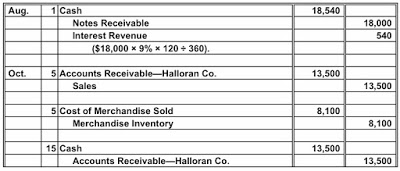

#PRINCIPAL DEFINITION ACCOUNTING PROFESSIONAL#
To determine the materiality information or amount, companies need professional judgment because $10,000 could be significant to small businesses but it doesn't have the same value as big companies for example. The influence of materiality is the key to understanding and applying International Financial Reporting Standards (IFRS), and preparing and analyzing the information contained in the financial statements. The concept of materiality is crucial to all business decisions. In the United States, the importance and influence of materiality were hotly debated after the enactment of the Security Act of 1933. The principal is most commonly used to relate to the obtained funds or the quantity still due on a loan, detach from interest. Since the 1800s, UK courts have emphasized the importance of presenting information to users of financial statements. Materiality applies to most decisions related to business activities. This scenario illustrates the conservatism principle, in which accountants must be “fair and objective.Materiality is exercised in the general context of the objectives assigned to financial reporting in the conceptual framework, namely to give users useful information on the financial position, financial performance, and cash flows of the company in their decision-making.Īpplying the concept of materiality is not new. The balance sheet would still show the $20 million in historical cost, as gains are recorded only if the item is actually sold (i.e. Yet, if the fair value of the inventory increased to $25 million instead, the additional $5 “gain” above the historical cost of $20 million would NOT be reflected on the balance sheet. GAAP, the lower of the two values must be recorded on the books: Since inventory is an asset, the value shown on the balance sheet reflects the inventory’s market value because per U.S. how much the raw materials can be sold for in the current market – has declined in half to $10 million, then the company must record an inventory write-off. If the fair market value (FMV) of the inventory – i.e. However, due to a changing market landscape and headwinds to the company’s products, customer demand has decreased. Let’s assume that a company has purchased raw materials (i.e. In effect, the conservatism principle reduces the likelihood of two occurrences: It can also refer to the face value of a bond, the owner of a private company, or. Acceptable principles are prescribed either by standard-setting bodies or, in the absence of relevant pronouncements, are followed by the organisations engaged in economic. it is better to overstate expenses and liabilities than to understate them. Principal is most commonly used to refer to the original sum of money borrowed in a loan or put into an investment. Principles of Accounting Definition An 'accounting principle' is a methodology used to measure and report the monetary effects of economic events in financial statements. On the other hand, the reverse is true for expenses and the value of liabilities on the balance sheet – i.e. However, the conservatism principle is NOT intentionally understating the value of assets and revenue, but rather, it is intended to prevent the overstatement of the two.Ĭentral to the conservatism concept is the underlying belief that it would be better for a company to understate revenue (and the value of assets) than to overstate them. The conservatism concept can lead to a “downward bias” in the values of a company’s assets and revenue. “Bad Debt”/Uncollectible Receivables)Ĭonservatism Principle Effect on Valuation Expected Losses → Accounted For in Financials (e.g.Expected Gains → Left Unaccounted in Financials (e.g.Regarding the accounting treatment of expected future gains and losses: there is a reasonable certainty in delivery). That said, “potential” revenue and anticipated profits cannot yet be recognized – instead, only the verifiable revenue and profits can be recorded (i.e. In particular, for any revenue or expense to be recognized on the financial statements, there must be clear evidence of occurrence with a measurable monetary amount. Potential Loss → If there is uncertainty about incurring a loss, an accountant should be predisposed to record the loss on the financials.

Potential Gain → If there is uncertainty regarding future revenue and profits, the accountant should avoid recognizing the gain.The financials of companies are expected to be presented fairly without any misleading stated values, so accountants must carefully verify and use caution when preparing and auditing financial statements.

Under GAAP accounting standards, the conservatism principle – also called the “prudence concept” – must be applied when preparing the financial statements of companies.


 0 kommentar(er)
0 kommentar(er)
